The Path to Democracy and Governance
|
Getting your Trinity Audio player ready... |
The Knesset is seeking to legislate us to death, and the court is taking on roles beyond its jurisdiction. The conduct of some government authorities is increasingly threatening our freedoms and the governance of our elected officials. The challenge at hand is to get the train of governance back on track as soon as possible—by defining Israel as Jewish and democratic
“Governance” is among the concepts that have recently taken root in Israeli political discourse. Good governance is often described as a powerful locomotive leading the government train, a powerful political engine efficiently pulling a long line of cars to their destination. Good rulers are often perceived as having the ability to implement decisions successfully and effectively, by identifying efficient ways to move the public train from point A to point B along the shortest, safest available route.
However, this image is fundamentally incorrect. Good governance is not blind force of action, and certainly not just a powerful and silent engine. A necessary condition for good governance is the ability to carry out objectives as defined, but it is certainly not a sufficient condition: good governance is measured first and foremost by the ability of government ministers to set the objectives themselves. A political figure, no matter how senior, who knows how to bring the train to its destination yet cannot determine the said destination, is not governing, but only acting as facilitator. He may have been appointed a minister, and perhaps he cuts ribbons at the end of the track—but he remains no more than a contractor.
There is no requirement of leaders to move along tracks laid by someone else; drivers will do the job just as well. The essence of governance is simple: to determine the direction in which to advance, and to set goals. Governance demands that elected officials lay new tracks only after they have themselves determined where they seek to lead the train.
The judiciary train in Israel has been moving in a certain direction for years. The locomotive drivers, and perhaps several first-class passengers too, have become accustomed to the old tracks, to the train stations they have passed through, and to the views they have seen through the windows. Since becoming minister of justice, I have been laying new tracks alongside the old ones, tracks based on principles that express the approach in the name of which I was selected to serve as Justice Minister.
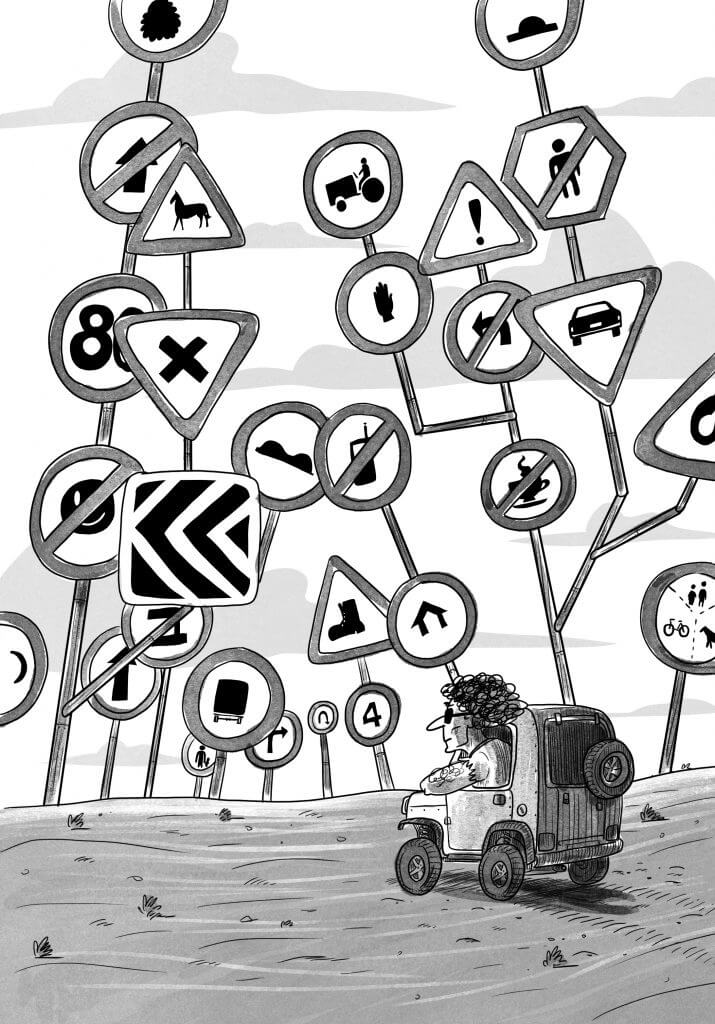
In the following sections I will seek to present the essence of these principles in relation to the great challenges facing those who shoulder the burden of governance. Let us start with the train’s journey in the Israeli legislature—the place where law begins.
I.
Strange though this may sound, every time members of the Knesset vote for a new law, and the Knesset plenum’s vote-tally board indicates parliamentary support, they are also casting their vote against something—something that should be dear to all who cherish the freedoms of western democracies.
This vote against is a tacit vote; it is hard to detect, and goes unrecorded in Knesset minutes. Nevertheless, it is a sharp, clear vote. It is a vote against our basic liberty, which is reduced the moment the new law is passed. It amounts to yet another issue in which our freedom as citizens is limited, joining a long list that the state already regulates. From the moment the law is passed, power of decision on how to act on the given issue is passed to the state.
Every time the Knesset supports a law that we assume serves a worthy purpose and attempts to solve a social or economic problem; every time the legislature chooses to express confidence in a new normative mechanism; every time this happens, we are raising our hands to support a vote of no confidence in the people, which takes place at the same moment.
It is a vote of no confidence in our ability as individuals and communities to conduct ourselves well enough without the state determining the course of our lives. It is a vote of no confidence in the wisdom of the people to create and maintain far more successful mechanisms than those designed artificially, through committees of experts or because of political pressures. It is also a vote of no confidence in the belief that human beings are the supreme judge of their goals, that every individual is ruler of his own life, and that therefore, his views must guide his actions to the extent possible. It is a vote of no confidence in the power of families, as well as social and economic communities, to manage their own affairs and to successfully strive to achieve their goals.
Nevertheless, MKs have sought to take away some of our freedoms no fewer than 1,500 times in the past 15 months.
A total of 1,500 bills came before the Knesset Ministerial Committee on Legislation, which I head, seeking to amend existing laws: to add or delete a section; to propose an idea that magically solves a difficult problem; to engineer society in a way that does only good, and never evil—this is what the MKs promised in the explanatory notes of their bills, and affirmed in the book of statutes.
But what is this burst of legislation—which consumes the Knesset’s time in a way unequalled in the Western world—if not a certification of the glorious failure awaiting at the end of the road for those who seek to solve every problem by means of legislation?
Here we need to stop the train journey, and recognize in good time that the tracks are crooked, and that a measure of correction is needed.
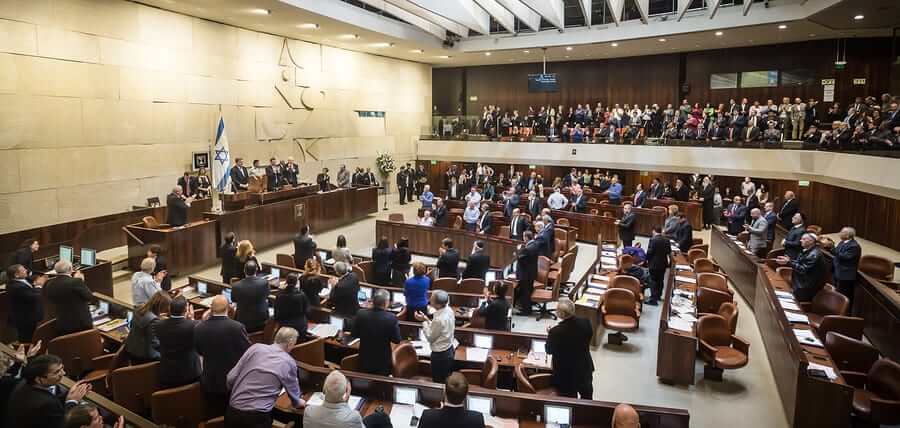
To start the work of laying new tracks, we first need to accurately identify the problem. Many view the surfeit legislation in Israel as a systemic overload that hinders the successful functioning of Knesset and government personnel. Hence, it is easy to understand those who have recently proposed expanding the number of MKs to ease the handling of the enormous amount of demanding legislative work. In my opinion, this would be nothing but a new hospital built under a broken bridge, to provide medical care for those who fall off.
I believe the overload is only a secondary problem, created by the large number of bills, and still worse, of laws passed. First and foremost, the predicament concerns freedom, or rather the lack thereof, which harms us as individuals and as a society.
In Two Lucky People: Memoirs, Milton Friedman describes his impressions from a visit to Israel in the 1960s:
Two Jewish traditions seemed to be at war in Israel: a hundred-year-old tradition of belief in paternalistic socialist government and rejection of capitalism and free markets; and a two-thousand-year-old tradition, developed out of the necessities of the Diaspora, of self-reliance and voluntary cooperation… of using every device of Jewish ingenuity to take advantage of such market opportunities as escaped the clumsy grasp of government officials. I concluded that, fortunately for Israel, the older tradition was also proving the stronger.[1]
Unfortunately, it seems that confident statements made over fifty years ago are hardly as convincing today. I dearly wish I could have the same confidence today that Friedman had about the certain victory of the values of freedom—those same values that were the hallmark of our people during two thousand years of exile, and that led us to the incredible prosperity we enjoy today. The current struggle between the two Jewish traditions is unfortunately far from being decided in favor of the system that advocates freedom, and in favor of those who believe that economic liberty is a necessary tool for creating freedom.
When I examine the bills upon which the Ministerial Committee on Legislation must decide, I discover that were we not to step hard on the locomotive’s brakes week after week, the bills would create an entirely different world, parallel to our own. In this world, the government would control the citizens through regulation of more and more areas of economic activity, and the individual would be left with very little freedom to manage himself and his affairs. The areas of freedom in this world, which create the enormous wealth we enjoy, would be ever decreasing because of a government apparatus that is always necessarily inefficient.
Here are several examples of the parallel world that would have been created had the Ministerial Committee not held back more than 1,100 unnecessary and potentially harmful bills during my first year as chair.
In this world, it would be forbidden for a property owner to raise rent for several years. This prohibition would of course cause drastic increases in rents just prior to its going into effect. In the second stage, it would turn apartments with a static price into a kind of price-controlled product unworthy of investment, and certainly unworthy of creation. This, in turn, would lead to a decrease in the supply of apartments, and, in any case, a further price increase. The necessary economic consequence would be the development of a black market for rentals, since black markets are always created when there is a regulatory shortage.
In this parallel world, supermarket chains would be obligated to set a uniform price for similar products, which would lead, of course, to prices that are standardized through price increases.
It is a world with heavy regulation, burdensome for employers but passed without discussing the matter with them or attempting to understand how the economy could withstand the contraction likely to result from the measures being sought.
It is a world that punishes hotels, but not by means of market forces, for failure to install Wi-Fi; a world that causes businesses to stop providing exchange vouchers by imposing onerous obligations on those who volunteer to provide them.
It is a world in which the right to housing is enshrined in legislation by the state, even though it cannot of course honor this right. The truth is that in order to bring about a situation in which every citizen has a roof over his head, increased building and a larger housing supply, not a change in our basic laws, are required—for only these will lead to a drop in prices.
It is a parallel world in which the basic rights of the country’s citizens are perhaps incomplete, but the rights of animals (including insects) are enshrined by mean of the Basic Law: Animal Rights, a law so comprehensive and extensive that were it passed, all those in the lowest income decile would look at the animals around them with envy and longing.

It is a world that offers pension packages which cannot be granted without imposing huge taxes to finance them, a world that fails to understand that this almost childish intervention in a free economy will lead to its complete and utter destruction.
It is a world in which police officers have no room for discretion, but must arrest any person if there are two complaints against them for violating a restraining order. Of course, this obligation would encourage false complaints in a family dispute, since any complaint, however groundless, is akin to an arrest warrant. But again, in this parallel world, it appears that the far-reaching implications for the citizens’ rights to defend their basic freedoms are forgotten.
And yes, this is a world in which bills would be passed that could only be described as “strange,” such as a bill that requires the state to distribute knife-proof vests to citizens, or a bill that seeks, for reasons of political correctness, to issue a sweeping ban on use of the term “households” (which in Hebrew includes the word av, or father).
If only I could be sure that the Israeli legislature is still seeking to promote the values of “self-reliance and voluntary cooperation … of using every device of Jewish ingenuity” which Friedman spoke of in the 1960s. Unfortunately, it seems to me that all the bills I enumerated here—and moreover those I did not—assume that the solution is always to be found in the state and its officials, and never in the individual or individual free initiative. These weeds in the realm of legislation, the urge to control, the desire to regiment and regulate more and more areas, must be recognized as a serious deviation from the tracks. I believe we must replace these old, crooked tracks if we are still interested in preserving our freedom as a society and as individuals. Good intentions surely undergirded the old tracks: the constraint on liberty was intended, in a variety of ways, to promote the “public good”. This, indeed, is the same Ben Gurionian principle that puts the public train on tracks that bring the passengers where they should go, though this may be far from where they want to go.
Nevertheless, I ask my colleagues in the government not to approve such bills, and I beg lawmakers to focus on what the public actually wants, and not what they deem appropriate for the public to want.
In examining the measure of our freedom, we ought to study the numbers. The third Knesset, elected in 1955 and dissolved after a little more than four years in 1959, passed a mere 13 laws. It, too, had 120 MKs. By contrast, the 18th Knesset, elected in 2009 and dissolved in 2013, managed to pass over 500 laws over the course of approximately four years, half originating as government bills and half as private bills. This disparity cannot be explained statistically or circumstantially, but indicates a profound conceptual change.
Tammy Knafo, the long-time secretary of the Likud faction, recently retired after more than 40 years of devoted work. She used to tell the young MKs about how our predecessors would precisely and punctiliously examine every bill and attempt to imagine its effects on both the individual and the public. Anyone who has come to the Knesset plenum in recent years knows how MKs sign bills today. An MK will often place his name on a bill as its initiator, though he has never reviewed it fully, not even superficially. It may be unpleasant to hear this, but the numbers are unambiguous: the great reverence of lawmakers from previous Knessets as they examined the cost of new legislation no longer exists.
Sometimes it seems like we are in a race to the bottom: Who will pass the most laws? Who will succeed in touching as many variant issues as possible? The (media) headline is primary; precision is secondary. The cost, in the currency of freedom, is also of lesser importance. The focus today is squarely on achieving small, specific goals, while ignoring the larger picture. The media encourages this by announcing a champion lawmaker from time to time, or the MK with the best record on social issues (without mentioning, of course, at whose expense).
Legislation in Israel has reached a dangerous level. The citizen’s freedom is seriously harmed by this competition among MKs, by this excessive intervention in the citizen’s life. We have replaced healthy competition between businesses with harmful competition between MKs.
And here, too, the train is speeding along old tracks. It is not just the citizen’s freedom that is affected; the free market, weighed down by the burden of superfluous regulation, is also suffering devastating damage. The freedom to conduct business is the oxygen of our manufacturing sector, and the entire economy is based on this. Nobody questions the fact that the state’s ability to finance its services depends first and foremost on the value and profit created by entrepreneurs, industrialists, employers and workers. Yet regulation, so beloved of lawmakers, is strangling them and placing the country’s growth in grave danger.
Israel is not the only place where businesses feel the pressure of regulation. It is ranked 53rd in the World Bank’s Doing Business index, in the somewhat uncomplimentary location between Moldova and Colombia, and below countries such as Thailand, Armenia, and Chile. In the Opening a Business index, the situation is even worse: Israel is ranked only 56th. [2] An OECD report published in January also noted that “Israel’s indicators of services trade restrictiveness and product market regulation are the most restrictive in the OECD.”[3] A high price is paid for all this, and the entire market lays it out in the hard currency of investor flight.
The free-market approach I advocate does not seek to turn the Middle East into the Wild West. It wishes to allow the players in the world of business to conduct themselves according to the basic game rules set, interpreted, and enforced by the state. It seeks to refrain from viewing the state as a central player, let alone a monopoly. It begs to prevent the state from restricting private actors’ discretion any more than is necessary, and it seeks to preserve the principle that the state is prohibited from doing anything it has not been permitted to do—while for the individual, anything not prohibited is permitted. The free-market approach I advocate cannot coexist with a regime of so many severe regulatory restrictions, which almost results in a situation whereby whatever is not explicitly permitted for businesses is forbidden.
In laying the new tracks in the field of legislation, I would honor U.S. Supreme Court justice Oliver Wendell Holmes, who had a profound diagnosis of the relationship between law and life—life in general, and particularly economic life. “The life of the law is not logic, but experience,” said Holmes[4], and thus established the principle whereby it is best to avoid unnecessary intervention in the successful mechanisms of life through statements and laws that rely on legal rationales. The cumulative experience of numerous relationships between individuals is that which should lead us, and not (necessarily) an abstract, almost mathematical legal logic, which often turns out to have nothing to do with the dynamics of the real world.
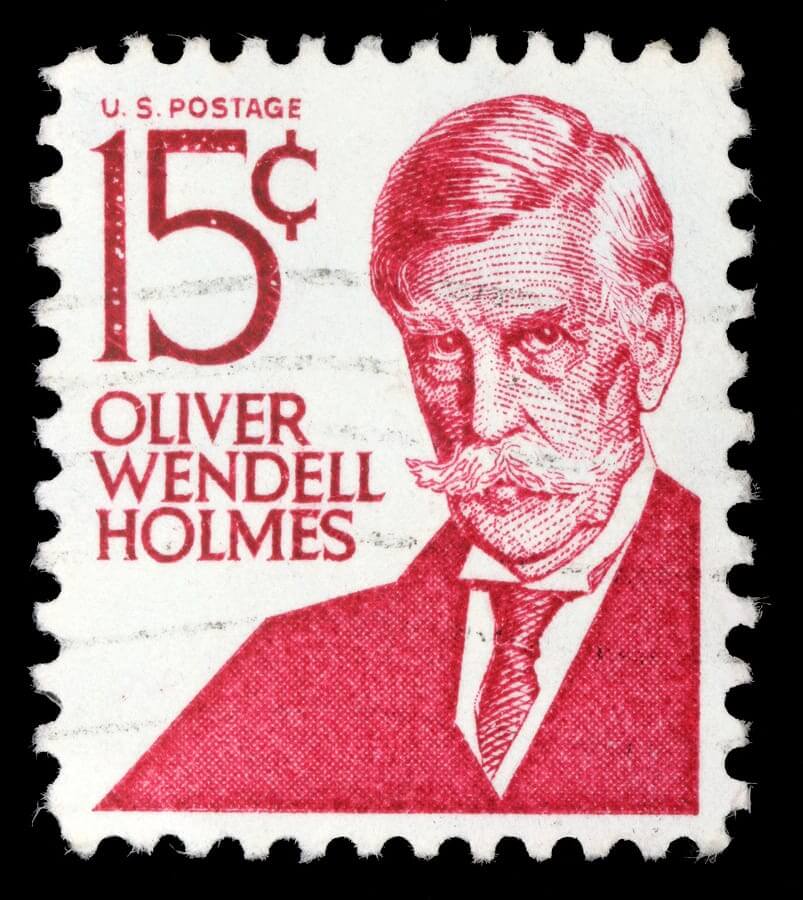
Holmes’s statement is based on the belief that the cumulative wisdom of the masses will always be greater than that of state experts, that the popular mechanisms will always be more flexible, faster, more responsive, and more adaptable than state mechanisms. The law, therefore, must attempt to reflect these mechanisms, and refrain from trying to create more successful alternatives.
The Knesset is near to my heart and I would never lend a hand to damaging it or diminishing its power; yet in recent years the railroad tracks of legislation have bent and rusted. A brief glance at some examples from the field of criminal law might clarify this still further. In this sense, the tendency toward greater criminalization of various activities is another way in which liberty is eroded and the economy is restricted. These activities, though they might be negative, can often be dealt with by less severe means than those offered by criminal law.
Here, too, statistics are eye-opening. The rate of creation of criminal offenses for actions in the business world has peaked in recent years. In labor law, between 2011 and 2013 (an 18-month period), 60 new criminal offenses that an employer can be accused of, as a result of actions carried out in business activities, were added. And this is far from being comprehensive: in environmental protection, within 24 months, 65 new criminal offenses were added. Overall, the numbers are alarming. There are now more than 1,000 criminal offenses of which an employer can be accused in relation to his business activity.
This situation is intolerable. It places severe restrictions on businesses and deters good people from holding office in corporations. We must put an end to it. Therefore, in preparation for passage of the 2017-18 budget, I have asked to add one decision to those already being advanced by the government: namely, that the Ministerial Committee on Legislation will no longer discuss laws whose aim is to add new criminal offenses to the law books, before the Research Division of the Justice Ministry conducts a comprehensive study of comparative international research, of how the new criminal offense will affect the economy, of alternative means for handling the issue, and so on. This will put an immediate stop on the unbridled addition of criminal offenses to the law books.
The reconstruction outlined above, which our legislative tracks are currently undergoing, will force the legal train to slow down just before it reaches the criminal station—a station that is supposed to be the final stop, certainly not the first. The new tracks give the train no choice but to move based on research, to consider alternatives, and to take the overall implications of any specific legislation into account. These tracks seek to influence the legislative process procedurally, without, of course, rejecting the principle of the authority that is always in the hands of the legislature, which I will defend with all of my might against anyone seeking to undermine its legitimacy.
II.
From the work of the legislature and the basic definitions of the state and the law, we move to the power struggle between the judiciary and the other branches of government.
Found in every society with a separation of powers, this problem intensified in the past year when the Supreme Court decided to strike down part of the framework for the management of natural gas resources established by the Israeli government. I was highly critical of this decision, and I would like to further explain the problem caused by decisions of this type, including recent Supreme Court decisions striking down different versions of the amendment to the law on entry into Israel, known as the “anti-infiltrator” law. Decisions such as these underscore the need for a basic law on legislation, which will provide clear and broadly consensual signaling for the governmental train tracks. It is my hope that when this law takes effect, the absurd situation in which the government and the Knesset are repeatedly surprised by a legal stop sign, will cease.
The Supreme Court ruling on the gas framework is an excellent starting point for discussion of the issue. The justices, loyal to the system of former court president Aharon Barak, who called a non-judicable issue “a legal black hole,”[5] decided not to categorically reject a public petition on the framework, and to discuss it on its merits. The true subjects of the petition were economic feasibility and the proper division of public resources between society in general and business owners—subjects which all concede as being outside of hard core legal terrain.
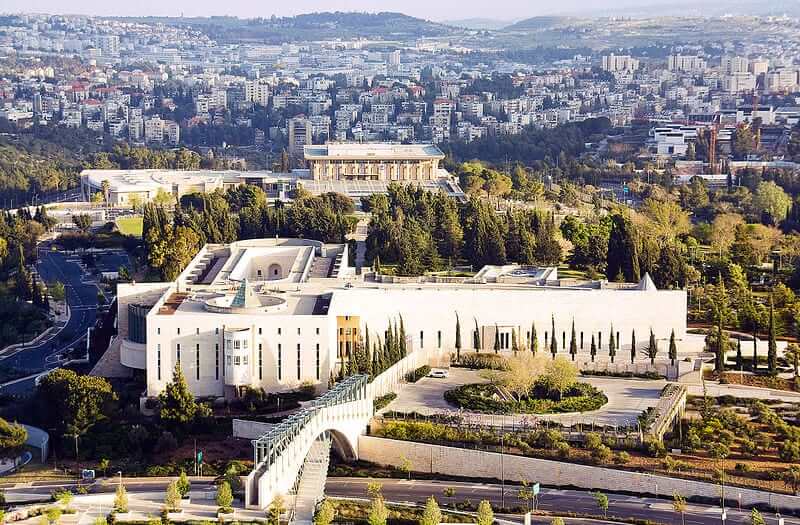
In my opinion, still worse than the great potential damage to Israel’s economy that might result from the court’s ruling are the legal ramifications: even in a case with enormous economic significance for Israel, the Supreme Court felt no need to discern a specific party that had suffered direct harm and on whose behalf the petition was being submitted. Once again, the court turned itself into an arena in which refined political and macroeconomic questions are arbitrated—questions that should be decided not in the great halls of the Supreme Court, but in many smaller halls: those of schools and kindergartens, which every four years serve as polling booths where Israelis cast their vote for their parliamentary representatives.
To Barak, those political areas in which decisions are made in the Knesset and the government, in which there is no justification for Supreme Court intervention, are “black holes.” I prefer to call them “governance spaces.” It is precisely here that the government’s ability to govern and the Knesset’s ability to legislate on behalf of the people—people who elected its representatives—are expressed.
The court’s classic role is to protect those who are directly harmed by government authorities, and not to decide on public issues. This idea was not invented by me, of course, but since it has been many a year since a statement to this effect was considered simple in Israel, I will quote Justice Witkon, stating the obvious in the Becker case: “You have no judicial proceeding except where there is a dispute. A person must come and assert his right or his grievance. It is in this way that a court’s deliberation differs from a discussion before the legislature or the executive.”[6]
Thus, in the past, the court required as a precondition that petitioners show that they were uniquely harmed, and this requirement is accepted even today in many countries, particularly the United States and England. However, the “black hole” theory has led to the big bang of the “constitutional revolution,” so that today there is virtually no issue on which the Supreme Court will not deliberate.
We thus have an absurd situation in which the petitioners against the gas framework, non-profits and MKs, have the full right to advance their political positions. Instead of doing so by the legitimate means of the political system, they do so through the legal system, exploiting it and overloading it with cases. I believe that this section of Israel’s judicial train tracks must also be reformed, and it is worth elaborating somewhat on the subject.
The problematic phenomena noted above did not come from nowhere; it is the result of protracted processes. In the past 30 years, opponents of actions by the government who seek to undermine its ability to govern have developed a familiar method of operation. According to the rules of this new method, a battle against government actions works like this:
In the first phase, opponents to government policy compete for the public’s confidence in elections to the Knesset. Here the struggle, conducted between two opposing worldviews, is crystal clear. If and when those parliamentary representatives, working to thwart government policy, remain numerically inferior at elections—they immediately move on to the second phase.
In this phase, the opponents of government action wage a public struggle in the Knesset against the government’s initiatives. This is entirely legitimate, and embodies the essence of democracy. After the voters have spoken, this struggle is sometimes hopeless, but it is in no way superfluous: it serves to fire up the academia and the media, setting the scene for the struggle’s third phase.
In the third phase, there is a sharp transition from “electoral politics” to “petition politics.” After their total and complete political loss, the forces opposing government’s actions will prevent it from carrying out its plan through petitions to the court.
Professor Menachem Mautner, in his article “The Hidden Law,” notes that the Supreme Court held a fascination for liberal circles—the press, the media, MKs from parties on the left, and legal academics.
It may be that the focus on the court as the main arena of activity was a strategy born of lack of choice for those who repeatedly found themselves in opposition, cut off from control of state budgets and administration of the state.[7]
When an MK submits a petition to the court, this effectively undermines his position as a representative of the legislature and renders the relationship between the judiciary and the legislature absurd. I do not believe a law should be enacted to prohibit MKs from petitioning the court; yet it is essential that the various branches of government respect one another, and it is even more basic that an MK must respect the fact that he is a member of the Israeli Knesset. Prior to political disputes, he is first and foremost a member of the Knesset, which is the rightful arena for his ideas and actions.
An international comparison will show just how unique the situation of Israel’s judicial system is. Alexander Hamilton needed only a few words to distinguish between a Supreme Court ruling, and government decisions and parliamentary legislation:
The executive not only dispenses the honors, but holds the sword of the community. The legislature not only commands the purse, but prescribes the rules by which the duties and rights of every citizen are to be regulated. The judiciary, on the contrary, has no influence over either the sword or the purse; no direction either of the strength or of the wealth of dsociety.[8]
Hamilton, one of the great men who shaped the U.S. Constitution, also served as an officer in the U.S. army and as secretary of the treasury, and thus was familiar with both purses and swords. As an expert in constitutional law, he believed with all his heart that the justification for the existence of a strong and independent judiciary was that it had neither sword nor purse. It was its lack of connection to either that justified its independence and strength.

We can only wonder what Hamilton would have said had he witnessed the expanded scope of judicial review in the Israeli system. Indeed, for cases in which government actions trample basic rights of individuals, and when those same individuals submit a petition against said transgressions, the Supreme Court can require the state to pay a great deal of money. But the court cannot become responsible for the purse itself—for the division of resources, for economic agreements, for everything that an elected government ought to do. This is an instance of power unaccompanied by responsibility: when the court rules that Palestinians injured during the intifada must be compensated, what purse will the compensation be paid out of? Who will take care of the public purse emptied as result of the elimination of private prisons? And who will see to it that the public purse is resewn when it is rent by the court’s verdict striking down the gas framework deal?
It is true that the court does not wield the power of the sword; over the years we have indeed witnessed a number of careful Supreme Court rulings, particularly in matters of security , in which we take great pride. But does the court’s habitual manner of ruling, reflected in the said gas framework verdict and in many others, sharpen the government’s sword or blunt it? The answer, I believe, is clear—and frustrating.
Is it still correct to state that the Israeli judiciary possesses neither sword nor purse? Is it really true that the judiciary in Israel has “no direction either of the strength or of the wealth of the society”? I find it highly doubtful. In fact, it is inconceivable to me that a judicial body that bears no responsibility for filling the purse permits itself to empty it. Unfortunately, this is the situation in Israel today.
It is also important to note which tool the court used to strike down the so-called stability clause in the gas framework proposed by the government. The dramatic ruling relied entirely on judicial legislation, and the legal grounds on which it rested were never legislated by the Knesset. The prohibition on restricting administrative discretion is judicial legislation. So, too, is the precedent-setting application in this ruling, which runs contrary to the courts’ recognition from time immemorial that one of government’s classic roles is to make contracts and agreements whose purpose is a future commitment in exchange for a future commitment by the other party.
With the trains of Israel’s branches of government moving over crooked tracks, it is no wonder they collide so frequently. The new tracks I seek to lay—with care and caution, while granting full protection to the independence and dignity of the court—are designed to define more precisely the routes of each of the branches—legislative, executive, and judicial—and thus to enable regular traffic and prevent future collisions.
Alexis de Tocqueville, the sharp-eyed Frenchman who visited the United States in the 1830s and wrote Democracy in America, had a profound insight into the actions of democratic governments and parliaments, both the good and the bad:
The defects and weaknesses of a democratic government may readily be discovered; they can be proven by obvious facts, whereas their healthy influence becomes evident in ways which are not obvious and are, so to speak, hidden. A glance suffices to detect its faults, but its good qualities can be discerned only by long observation.[9]
It was not for nothing that Tocqueville distinguished between two timelines, one short, the other long. In the very short term, by breaking government activity down into tiny fragments, in limited time segments, and focusing on individual decision after individual decision, we can examine the action of the government and parliament so that each shortcoming and failure is revealed beneath the legal microscope examining each narrow and specific action. But only a person with real patience, who knows that the advantage of democratic government lies not in its immunity from errors, but in the fact that its errors can be corrected in the long term; only a person with confidence in the public’s choice; only a person who sees independent value in a direct connection between the public and the results of government actions—only a person like this could understand the enormous benefits of long-term governance power. It is this that de Tocqueville meant when he spoke of the healthy influence of the government’s ability to govern effectively.
Tocqueville’s words must be borne in mind as we lay the new tracks regulating the relations between the Supreme Court and other branches of government. The healthy influence of governance emerges in ways that are not obvious, certainly not in a brief focused glance which misses the aggregate damages caused when the court repeatedly strikes down the products of the government and the Knesset.
III.
However, not all the problems facing Israel’s system of government are structural. Some of the problems derive from content, from the train’s destination no less than the level of track maintenance.
Here I would like to return to the basic question of the constitutional definition of the State of Israel as “Jewish and democratic.” To deepen the discussion required in this section, allow me to place a guest named Elik on the nearest platform. Elik, who was “born of the sea,” is the hero of Moshe Shamir’s With His Own Hands, whose subtitle in the original Hebrew is Elik’s Story.[10]
Elik fell in Israel’s War of Independence, ambushed by gangs near the Arab village of Yazur. By virtue of the book, published in 1951, he became the symbol of an entire generation and the ultimate sabra—the model of new “Israeliness.” He was the “generation of 1948” embodied in one man, with Israeli-style muscles, with a rifle in hand, golden sands and flowering farms. He personified a new era of construction, creativity and independence.
After 2,000 years of Jewish life detached by the sword from any political context of sovereignty outside the boundaries of the community, the people of Israel returned to history, to the forefront of the world stage. The Zionism of the 1940s and 1950s was the Jewish people’s emergence into the family of nations. We returned to the Land of Israel to create a state, and the figure leading the way was Elik.
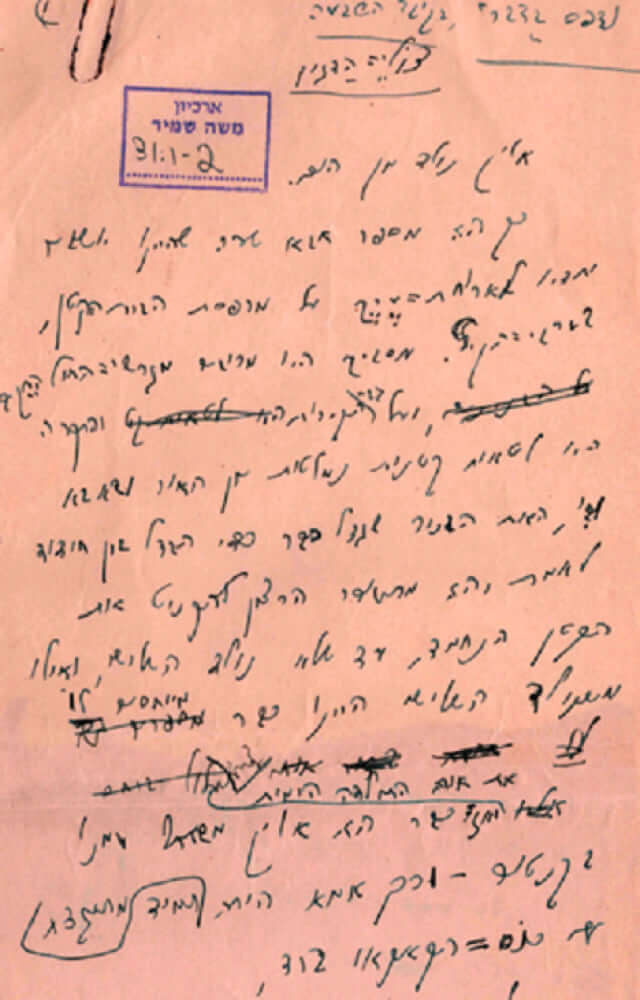
But Elik was “born of the sea”—and not by accident, not just as a figure of speech, and not just because the Shamir family really did live on the beach in Tel Aviv. The birth from the sea is conscious, the consciousness of a generation. Many Eliks born of this generation perceived themselves as a new page in Jewish history, a tabula rasa disconnected from the form of Jewish existence in exile—and, in turn, the state in the making as an entity having no connection to Jewish tradition as it had developed over the years. The familiar expression “from the Tanakh [the Hebrew Bible] to the Palmah” elegantly skips over the two thousand years in the middle. Some folkloric use was made of the nationalistic elements present in biblical stories; beyond this, there was precious little in the way of tradition.
In what I see as an unfortunate but understandable fault of that generation, the state was experienced as a new creation, a Western model imported to the Levant, in crates unloaded from ships at the port. Based on this approach, which has since become the accepted paradigm, the foundations of our democratic state lie in the writings of Plato, Bentham, Mill, Hobbes, Rousseau and others. Per this mistaken attitude, we received the Torah at Mount Sinai, and the democratic state from Europe. As a people we were born in the desert, but as a state we were born, like Elik, of the sea.
These things were expressed in various contexts and were also reflected in the judicial system. It is the way of the world that law serves the superstructure of society, and is therefore deeply influenced by the dominant political, philosophical, and economic paradigms of a given society. The legal definition of the State of Israel as a Jewish and democratic state did not create a new social reality when it was accepted in the 1990s as part of the newly passed basic laws. It was, in fact, another link in the cultural and legal continuum that mistakenly perceived the state and the democratic form of government as a matter that has nothing to do with Jewish tradition, and perhaps even contradicts it.
Thus, even though the formula “Jewish and democratic state” came into being many years after the state’s founding, the only thing new about it is its format. Into the legal mold of the basic laws of 1992 was cast political, ideological, and cultural material that had come into being a long time before. This material was shaped over the years by the leadership of Israeli society, which perceived itself (again, mistakenly) as having come from the sea. This was a leadership that moved mostly in the range between the belief that “Jewish” and “democratic” are disconnected from one another in practice, and the opinion that this disconnect is in fact desirable. The Eliks wished to defend democracy from theocracy, while those on the other side of the divide who shared their belief that Judaism was disconnected from democracy, such as Professor Yeshayahu Leibovitz, sought to protect Judaism from the “clutches of the state” and from its inevitable secularization. The constitutional tracks in existence to this day were created within this cultural outlook, which sees Judaism and democracy as two opposing poles. They are tracks laid on sand.
Legal implications can also be found, for example, in an article by former Supreme Court president Barak, “The Constitutional Revolution: Protected Basic Rights”:
The content of the phrase “Jewish state” will be determined by the level of abstraction it is given. In my opinion, this phrase should be interpreted on a high level of abstraction, which will unite all members of society and find that which they have in common. The level of abstraction should be so high that it is consistent with the democratic character of the state. […]
The fundamental values of Judaism are the fundamental values of the state. I mean the values of love of man, the sanctity of life, social justice, doing what is good and just, preserving human dignity, the rule of law over the legislature, and the like—values Judaism has bequeathed to the entire world. We approach these values on their level of universal abstraction, which matches the democratic character of the state; thus, the values of the State of Israel as a Jewish state should not be identified with Jewish civil law. We must not forget that there is a significant non-Jewish minority in Israel. Indeed, the values of the State of Israel as a Jewish state are those same universal values common to those in democratic societies, which have emerged from within Jewish tradition and history.[11]
By means of this interpretation, Barak effectively turned the concept of a Jewish state into something symbolic, a concept that exists only insofar as it is completely consistent with the values of “democracy”—and a very specific version of democracy at that. Thus the concept of a Jewish state became almost meaningless. This is one of the main tracks he succeeded in laying and consolidating during his tenure as Supreme Court justice and president, a track many opposed. Justice Menachem Elon, at the time the Supreme Court vice president, very justifiably sought to present a totally different thesis on the issue.
Here are some of Elon’s remarks at the Canada-Israel Law Conference, which took place shortly after publication of Barak’s comments:
You wonder and you ask: How is it possible to set an entirely different standard for each of the two expressions that appear in the same law and the same sections, Jewish and democratic, both meant to describe the same thing, the essence of the State of Israel? What is the interpretative justification for this?
How can we leave the expression “democratic”—which, by the way, appears second, after the expression “Jewish”—laden with its full meaning and interpretation based on related rulings and literature written in Israel and abroad, yet strip the expression “Jewish” of all its inherent and original meaning, turning it into a supplementary, accompanying concept, in thrall to the concept of “democracy”?
Who permitted us to rule out in advance consideration of the meaning of these values as interpreted in the sources from which they came and grew, that is Jewish tradition, Jewish civil law, and the customs of the Jewish people?[12]
The disagreement between Barak and Elon is not a dispute over law, but an almost tectonic clash taking place within Jewish civilization. This civilization, upon its return to the Land of Israel, discovered that, like the biblical Rebecca, “there were twins in her womb.” It is Jewish and it is democratic at the same time, with a single form of existence. The boys tug within her, one pulling this way, the other that. The big question remains: can both experience a healthy birth and be raised side-by-side, or does one endanger the other, so that parents must reach a painful verdict on the terrible question of which of the two will be born?
But alongside the view of “Jewish” and “democratic” as constituting a constant struggle and a clash of civilizations, I believe we can propose another model. I am unwilling to accept that we must choose one and oppose the other. Moreover, I am not willing to accept the idea that the two traditions are so very different.
What guided John Locke, the father of liberalism and democracy in the modern period, when he established the right to equality, if not the story of man’s creation in the Garden of Eden, in the way Genesis chose to describe it? On what did Locke base the right to property if not the chapters on creation? After all, Locke’s Second Treatise of Government is almost a close textual reading of Genesis.
On what did Thomas Jefferson base himself when he wrote the Declaration of Independence, when he wrote that “we hold these truths to be self-evident, that all men are created equal, that they are endowed by their Creator with certain unalienable Rights, that among these are Life, Liberty, and the pursuit of Happiness”?
What is the model that countless revolutionaries, seekers of justice, and opponents of tyrannical regimes had in mind, if not the biblical figure of the prophet who bluntly tells the king, replete with absolute power, the bitter truth, and is staunchly uncompromising in his demand for justice?
Where did we find the model of separation of powers thousands of years ago? The model of majority rule? The right of decision granted to human beings and not to heaven? The opposition, appearing in many books of the Bible, to the very existence of monarchic rule? The possibility of leveling bitterly harsh criticism against a leader who murders and inherits?
It was not primarily Roman law or the democratic tradition of the Athenian polis that shaped and forged the modern democratic tradition in Europe or the United States, but Jewish tradition—joined, of course, by others. Since time immemorial, the biblical and rabbinic traditions have had a place of honor in the discourse between the great traditions.
But it was not just the Bible. Although most Jews immigrated to Israel from countries lacking a democratic tradition, they brought with them a living tradition of this kind from their own communities. In the words of Eliezer Schweid,
As long as there were traditional Jewish communities in the lands of the Diaspora (including eastern Europe, Africa, and Asia), and as long as there were modern national and international Jewish organizations and associations, there existed democratic Jewish traditions, duly based on Jewish law and civil law, irrespective of the regimes in power in the lands of the Diaspora. Of course, these were traditions with special character, both because of culture and Jewish religious law, and because of the circumstances of the Diaspora. But this was clearly democracy, which derived its values of “human dignity and freedom” and the values of solidarity and mutual responsibility from religious sources.[13]
In the previous Knesset, I decided to lay new tracks in this area as well, and together with my colleague Minister Yariv Levin, I submitted a bill called Basic Law: Israel as the Nation-State of the Jewish People. In our minds was the lowered stature of the Jewish element in “Jewish and democratic,” which requires serious rehabilitation. From Elik’s cultural heritage to Barak’s legal interpretation, the Jewishness of the Jewish state has been unable to find a place of respect. We therefore thought it appropriate to grant a special constitutional status to the definition of Israel as a Jewish state, not merely as a symbol, not as a flag and not as a sign, but as a matter of practical consequence—for the status of Hebrew as the formal language, for immigration to Israel, Jewish settlement, the connection with the Diaspora, the state symbols, the calendar, and more beyond.
Some time after submitting the bill, I came across a text that was no less than fundamental from my perspective, expressing with remarkable accuracy my vision concerning the Jewish state. I felt it gave a positive and full definition of the state’s Jewishness, unlike Barak’s meager definition in his dispute with Elon. I felt that an opportunity for positive change in the track’s route lay before me. I will share some of the text with you:
A Jewish state is thus the state of the Jewish people. It is the natural right of the Jewish people, like every other people, to be independent in its sovereign state, a state to which every Jew has the right to immigrate and for which the ingathering of the exiles is a basic value.
A Jewish state is a state whose history is intertwined with the history of the Jewish people, whose language is Hebrew, and whose main festivals reflect its national rebirth.
A Jewish state is a state in which Jewish settlement in its fields, cities, and farming communities is the main priority.
A Jewish state is a state that promotes Jewish culture, Jewish education, and love of the Jewish people.
A Jewish state is the realization of the aspiration of generations for the redemption of Israel.
A Jewish state is a state whose values are derived from its religious tradition, in which the Bible is its most basic book, and in which the prophets of Israel are the foundation of its morality.
A Jewish state is a state in which Jewish civil law plays an important role and in which the laws of marriage and divorce of Jews are determined according to Torah law.
A Jewish state is a state in which the values of the Torah of Israel, of Jewish tradition, and of Jewish law are among the basic values.
What is astonishing about this text, beyond the words themselves of course, is the author’s identity. The text is taken from The Judge in a Democracy, written by none other than Justice Aharon Barak.[14]
It was rather surprising to encounter such writing, given Barak’s famous rulings on what he sees as the problems of allocating lands for Jewish settlement, the meager place he gives to Jewish civil law in Israel’s judicial system, and the special status of couples who cannot be wed by Israeli (Jewish) law, yet by dint of his rulings receive almost complete legal recognition (something quite unparalleled in any other country in the world).
It is surprising because the nation-state bill I submitted with my colleague Yariv Levin came into being precisely as a reaction to Barak’s rulings, specifically because these rulings have rendered the concept of a Jewish state so shallow. And here, all of a sudden, the concept receives such deep and varied meanings, becoming so rich and full, in the writings of Barak of all people. How can this be the case?
On second thought, perhaps the surprise ought not to be so great. The gap between the words appearing in Barak’s verdicts and those that appear in his book is precisely the gap between a merely symbolic issue, and a norm regulating the conduct of individuals and society. This gap allows the Jewish element in the legal formula to be stripped and reduced of all real content, while the very same concept is exalted and described in careful detail as a theoretical idea in the book.
By contrast, we wish to have a Jewish and democratic state in which each of the elements receives its full significance, and neither is required to bow to the other. In my vision, the Jewishness of the state will not remain a hollow symbol, but will have a life of its own. Accordingly, the track laid by the Knesset in the mid-1990s, which sought to establish a dual constitutional definition for the State of Israel, today requires massive forging.
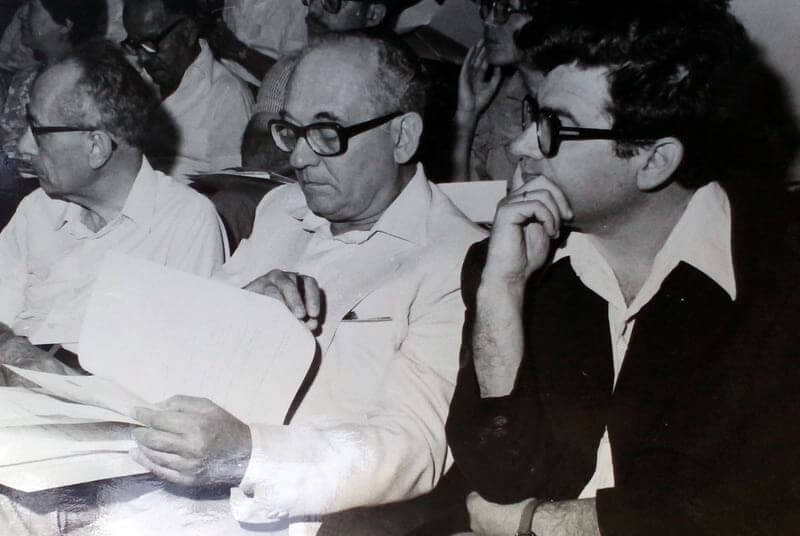
Of course, such change raises complex questions. When the concept of a Jewish state ceases to be a symbol and receives real meaning, who might be harmed as a result? Will the current balance between different worldviews and their representative factions be disrupted? Will we emerge unscathed? The answer to this I found in the prophecy of Isaiah, when he speaks to the barren woman, who represents the people of Israel: “Enlarge the place of thy tent, and let them stretch forth the curtains of thy habitations, spare not; lengthen thy cords, and strengthen thy stakes” (54:2). In other words, it is precisely when we seek to stretch out the tent flaps, to bring in as many of the children to be born as possible, that we must reinforce the strings and drive the stakes deeper into the earth.
As the parable, so the lesson. It is precisely when we wish to promote an advanced processes of democratization in Israel that we must deepen its Jewish identity. These identities clearly do not contradict each other; on the contrary, I believe that they strengthen and complement each other. The more Jewish we are as a state, the more democratic we will be, and the more democratic we are, the more Jewish we will be. The route of the Israeli law train must take the Jewishness of the state into account, not merely as a symbol, but as a matter laden with concrete implications. What Justice Barak wrote in his book must be applied even in his rulings.
IV.
I am a firm believer in the citizens of Israel. I am a firm believer in traditions, customs, and the culture that has developed here in recent decades, which is a result of a unique combination of Jewish tradition, democratic ideas, and the modern world. For this reason, I believe that we must shape the government system so that it can give appropriate expression to all these fundamental concepts. We must shape it in a way that will provide sufficient power and leeway to elected officials, while minimizing harm to individual liberties and giving maximum consideration to the people’s freedom to live their lives as they wish.
I am also a firm believer in the rule of law and in the judicial system’s important role in protecting it and warning its endangerment. However, as I have emphasized, we must not allow the trend of judicial restriction to burgeon until it becomes a basic norm; until the stop sign for our elected officials replaces all other traffic signs.
We can find the essence of the democratic regime in the fundamental insight coined by Abraham Lincoln more than 150 years ago, namely that the only justification for activity by the government is its deep and direct connection with the people: “government of the people, by the people, for the people.” This means first and foremost that government takes care of public interests, as determined by the people by means of democratic elections.
The wisdom of the Jewish people and their long history has proven time and again that we would do well to rely on our popular mechanisms and national wisdom. For this reason, I believe that nothing is more just or correct than the decision of the people and its representatives. It is the people and its representatives who must express the people’s will, and their decision ought to be the last word in the public sphere.
The government is nobody's contractor. Its obligation is only to the people, who elected it by majority vote and who desire a free economy, individual liberties, and a state with a genuine Jewish character, living and vibrant. Its obligation is to the same people who wish to determine its fate directly and through its elected officials.
I hope that every single government minister has in mind solely his obligation to the citizens of Israel—to all citizens of Israel, those who voted for his party and those who did not.
I call upon every minister—and of course I will do this myself—to lay new tracks in every instance of old tracks that are no longer serving the public good. I have no doubt that in the coming years, the trains will be traveling over them smoothly and rapidly, and that “those who sow in tears shall reap in joy.”[15]
* MK (Member of Knesset) Ayelet Shaked is Justice Minister of Israel.
[1] Milton and Rose D. Friedman, Two Lucky People: Memoirs (Chicago and London: University of Chicago Press, 1998), p. 465.
[2] World Bank, Doing Business 2016: Measuring Regulatory Quality and Efficiency, http://www.doingbusiness.org/~/media/GIAWB/Doing%20Business/Documents/Annual-Reports/English/DB16-Full-Report.pdf.
[3] OECD Economic Surveys: Israel 2016, http://www.keepeek.com/Digital-Asset-Management/oecd/economics/oecd-economic-surveys-israel-2016_eco_surveys-isr-2016-en#page1, p. 29.
[4] World Bank, Doing Business 2016: Measuring Regulatory Quality and Efficiency, http://www.doingbusiness.org/~/media/GIAWB/Doing%20Business/Documents/Annual-Reports/English/DB16-Full-Report.pdf.
[5] Moshe Reinfeld, “Barak: Without Judicial Review, There Will Be a ‘Black Hole,’” News 1, November 16, 2007, http://www.news1.co.il/Archive/001-D-146088-00.html (Hebrew).
[6] HJC 40/70 Becker v. Minister of Defense, IsrSC 24(1) 238, p. 268.
[7] Menachem Mautner, Law and Culture in Israel at the Threshold of the Twenty-First Century (Tel Aviv: Am Oved, 2008), p. 218 (Hebrew).
[8] Alexander Hamilton, James Madison, and John Jay, The Federalist Papers, ed. Clinton Rossiter (New York: Penguin Putnam, 1961), p. 464.
[9] Alexis de Tocqueville, Democracy in America, American Studies at the University of Virginia, http://xroads.virginia.edu/~hyper/detoc/1_ch14.htm.
[10] Moshe Shamir, With His Own Hands (Jerusalem: Institute for the Translation of Hebrew Literature / Hebrew Universities Press, 1970).
[11] Aharon Barak, “The Constitutional Revolution: Protected Basic Rights,” Law and Government 1 (1992): pp. 30-31 (Hebrew).
[12] Menachem Elon, “Constitution by Legislation: The Values of a Jewish and Democratic State in Light of the Basic Law: Human Dignity and Personal Freedom,” Iyunei Mishpat (Tel Aviv University Law Review) 17 (1992): p. 686 (Hebrew).
[13] Eliezer Schweid, “Israel as a Jewish-Democratic State: Historical and Theoretical Perspectives,” in Zionism after Zionism, ed. Eliezer Schweid (Jerusalem: Zionist Library, 1996), pp. 132-147 (Hebrew).
[14] Aharon Barak, The Judge in a Democracy (Haifa: Haifa University Press, 2004), pp. 87-88 (Hebrew).
[15] Psalms 126:5.










borvest inkral
24.06.2017Do you mind if I quote a couple of your articles as long as I provide credit and sources back to your webpage? My blog site is in the exact same area of interest as yours and my visitors would really benefit from some of the information you present here. Please let me know if this okay with you. Regards!
http://www.borvestinkral.com/
מערכת השילוח
25.06.2017Hello – the link you provided us with in order to see the website you'd like to publish Hashiloach materials in is unclear. Please send an e-mail with the information.
Have a great day,
Hashiloach